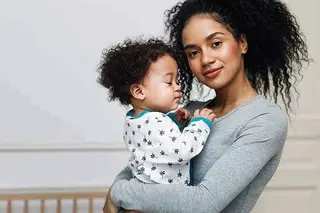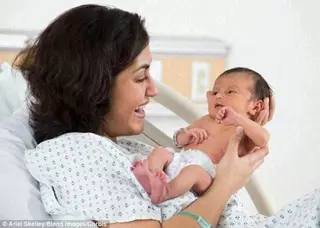Deciding when to have a child as a woman is a personal and multifaceted decision in every part of the world. Society often sets expectations, but each woman must consider her own unique circumstances, aspirations, and biology, as captioned by entrepreneurng.com

Fertility Considerations
One of the crucial factors in determining the best age to give birth is fertility. Biologically, women generally have the highest chances of conceiving between the ages of 20 and 35. In their twenties, women tend to have a higher egg quality and quantity, resulting in a higher likelihood of successful pregnancies. However, this does not mean that women in their thirties or forties cannot conceive. Assisted reproductive technology has made it possible for many women to have children later in life. Nevertheless, it is important to acknowledge that fertility declines as women age, and the chances of complications during pregnancy and birth may increase.
Physical Health
Another crucial consideration when contemplating the best age to give birth is a woman’s physical health. Pregnancy can take a toll on a woman’s body, and being in good physical shape can positively impact both the mother and the baby. Younger women often have more physical stamina and greater resilience during pregnancy and childbirth. Maternal mortality rates also tend to be lower among women in their twenties. However, this does not mean that older women cannot have healthy pregnancies and deliver healthy babies. It is important for all women, regardless of age, to prioritize their physical health before and during pregnancy.
Emotional Readiness

Emotional readiness plays an integral role when determining the best age to give birth. Becoming a mother is a life-altering responsibility that requires immense emotional maturity and stability. Younger women may still be exploring their own identities and may not be fully prepared to take on the immense task of raising a child. On the other hand, older women may have established careers and emotional stability, allowing them to better handle the challenges of motherhood. However, it is important to note that emotional readiness varies greatly among individuals, and there is no perfect age that guarantees emotional preparedness.
Career Aspirations
The question of when to have a child is often intertwined with a woman’s career aspirations. Earlier generations often felt compelled to choose between having a family or pursuing a career, but societal norms are gradually shifting. Many women are now able to strike a balance between their professional ambitions and their desire to have children. Advancements in technology, flexible work arrangements, and supportive policies have contributed to this shift. While there is no perfect age to strike this balance, it is crucial for women to consider their professional goals when deciding on the best age to give birth.
Conclusion: woman

While the optimal age may be different for every individual, it is important to remember that there is no perfect time to have a child. Ultimately, the decision should be guided by what feels right for the woman and her unique circumstances. Society should support women in making this deeply personal choice and respect their autonomy to decide when the time is right to embark on the journey of motherhood.

